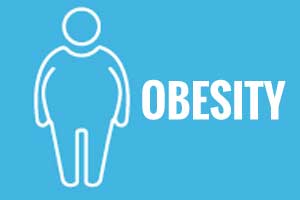- Home
- Editorial
- News
- Practice Guidelines
- Anesthesiology Guidelines
- Cancer Guidelines
- Cardiac Sciences Guidelines
- Critical Care Guidelines
- Dentistry Guidelines
- Dermatology Guidelines
- Diabetes and Endo Guidelines
- Diagnostics Guidelines
- ENT Guidelines
- Featured Practice Guidelines
- Gastroenterology Guidelines
- Geriatrics Guidelines
- Medicine Guidelines
- Nephrology Guidelines
- Neurosciences Guidelines
- Obs and Gynae Guidelines
- Ophthalmology Guidelines
- Orthopaedics Guidelines
- Paediatrics Guidelines
- Psychiatry Guidelines
- Pulmonology Guidelines
- Radiology Guidelines
- Surgery Guidelines
- Urology Guidelines
Should obesity be recognised as a disease?

With obesity now affecting almost a third (29%) of the population in England and expected to rise to 35% by 2030, should we now recognize it as a disease? Experts debate the issue in The BMJ today.
Obesity, in which excess body fat has accumulated to such an extent that health may be adversely affected, meets the dictionary definition of disease, argue Professor John Wilding at the University of Liverpool and Vicky Mooney, representing the European Coalition for People living with Obesity (ECPO).
They point out that more than 200 genes influence weight, and most of these are expressed in the brain or in adipose tissue. “Thus body weight, fat distribution, and risk of complications are strongly influenced by biology - it is not an individual’s fault if they develop obesity.”
They argue that the recent rapid increase in obesity is not due to genetics but to an altered environment (food availability and cost, physical environment, and social factors).
Yet the widespread view is that obesity is self-inflicted and that it is entirely the individual’s responsibility to do something about it, while healthcare professionals seem ill-informed on the complexity of obesity and what patients with obesity want.
Recognizing obesity as a chronic disease with severe complications rather than a lifestyle choice "should help reduce the stigma and discrimination experienced by many people with obesity,” they add.
They disagree that labelling a high proportion of the population as having a disease removes personal responsibility or may overwhelm health services, pointing out that other common diseases, such as high blood pressure and diabetes, require people to take action to manage their condition.
They suggest that most people with obesity will eventually develop complications, and those who do not could be considered as not having the disease. “But unless we accept that obesity is a disease, we are not going to be able to curb the epidemic,” they conclude.
But Dr Richard Pile, a GP with a special interest in cardiology and Clinical Lead for Prevention for Herts Valleys Clinical Commissioning Group, argues that adopting this approach “could actually result in worse outcomes for individuals and society.”
He believes that the dictionary definition of disease “is so vague that we can classify almost anything as a disease” and says the question is not whether we can, but whether we should, and to what end.
If labelling obesity as a disease was harmless then it wouldn’t really matter, he writes. But labelling obesity as a disease “risks reducing autonomy, disempowering and robbing people of the intrinsic motivation that is such an important enabler of change.”
There is an important difference psychologically between having a risk factor that you have some responsibility for and control over and having a disease that someone else is responsible for treating, he says.
What’s more, making obesity a disease “may not benefit patients, but it will benefit healthcare providers and the pharmaceutical industry when health insurance and clinical guidelines promote treatment with drugs and surgery,” he warns.
While self-determination is key in enabling change, “we should acknowledge that the origins of obesity for most people are social, and so too is the solution,” he adds. “If people meet, shop, cook, eat, and engage in activities together the end result will be improved wellbeing and reducing obesity will be a consequential beneficial side effect.”
Classifying obesity as a disease is neither essential nor beneficial. It’s much more complicated than that, he concludes.

Disclaimer: This site is primarily intended for healthcare professionals. Any content/information on this website does not replace the advice of medical and/or health professionals and should not be construed as medical/diagnostic advice/endorsement or prescription. Use of this site is subject to our terms of use, privacy policy, advertisement policy. © 2020 Minerva Medical Treatment Pvt Ltd